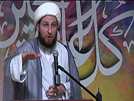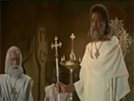2. The First Leader
- Details
- Hits: 2300
2. The First Leader
No society, at any time or place, can stand free and liberated without a leader. We also know that if a ruler is dedicated to the wellbeing of the society, then he must strive to protect it and he must also take into consideration the present as well as the future of that society.
It is because of this necessity that rulers, even during short journeys, appoint a deputy. This is evident in every case of leadership. A head of the family, a principal or headmaster of the school, a foreman in a factory, all put a deputy in their place for the absence of even a few hours. This matter is so obvious that it needs no proof.
The great Prophet of Islam, who was the leader of the Islamic world, observed this very principle. Wherever the light of Islam shone for the first time, he always appointed an administrator for that place to look after its affairs. When he sent armies for jihad, he appointed a commander, and sometimes appointed several persons as deputy commanders so that if one was killed, the army would not be left without a commander. Thus we know of persons whom the Prophet appointed as his deputies and representatives whenever he traveled from Medina, so that Medina should not be without a leader during his absence.
The Shi‘as ask how, with this evidence, it is consistent with the wisdom of the Prophet that he should die without appointing a successor. Which of the following possibilities seems reasonable:
Was the Islamic society, after the death of the Prophet, not in need of a leader again?
Or did the Prophet of Islam attach no importance to the Muslim community after he had gone?
Or were concerns and prudence something he could do nothing about?
Or did he not know who was the worthiest successor?
Which of these possibilities seems more reasonable?
With the quality of leadership and the concern for the affairs of the people which we see in the Prophet of Islam, how could he have not given any guidance or instruction on this vital matter of the Muslims' leadership?
In the light of this reality, the Shi‘as proceeded to investigate the original texts and documents of Islam and they came across an enormous quantity of sources which made them conclude that there are clear, sufficient, precise orders from the Prophet of Islam about his successor: the verse of wilÄyah, the hadith of GhadÄ«r, the hadÄ«th of Safinah, the hadÄ«th of Thaqalayn, and many more, all of which are tested, examined and explained in the great works done on this subject.
From all these we shall select only the hadīth of Ghadīr and we shall seek to judge its value and implications in an unprejudiced manner.











